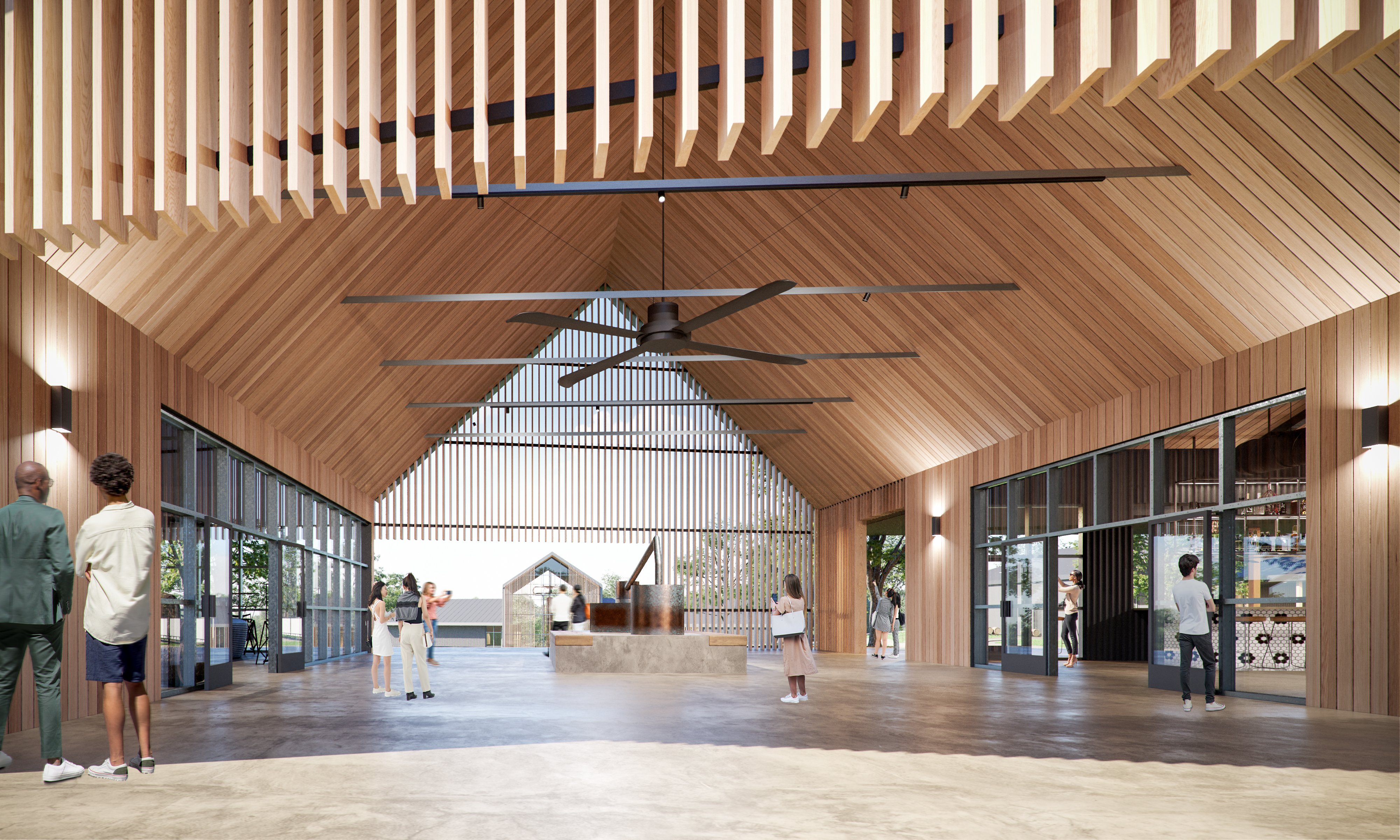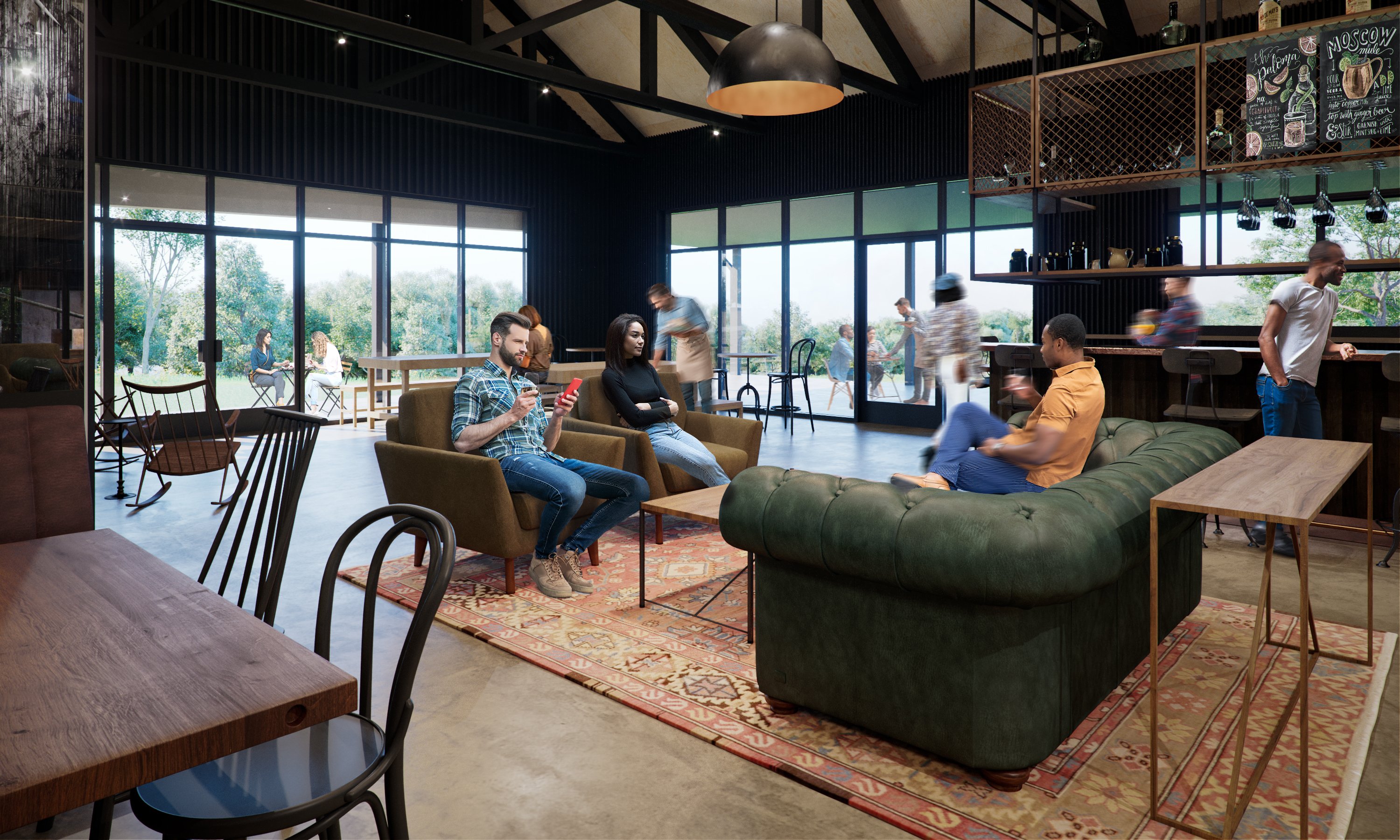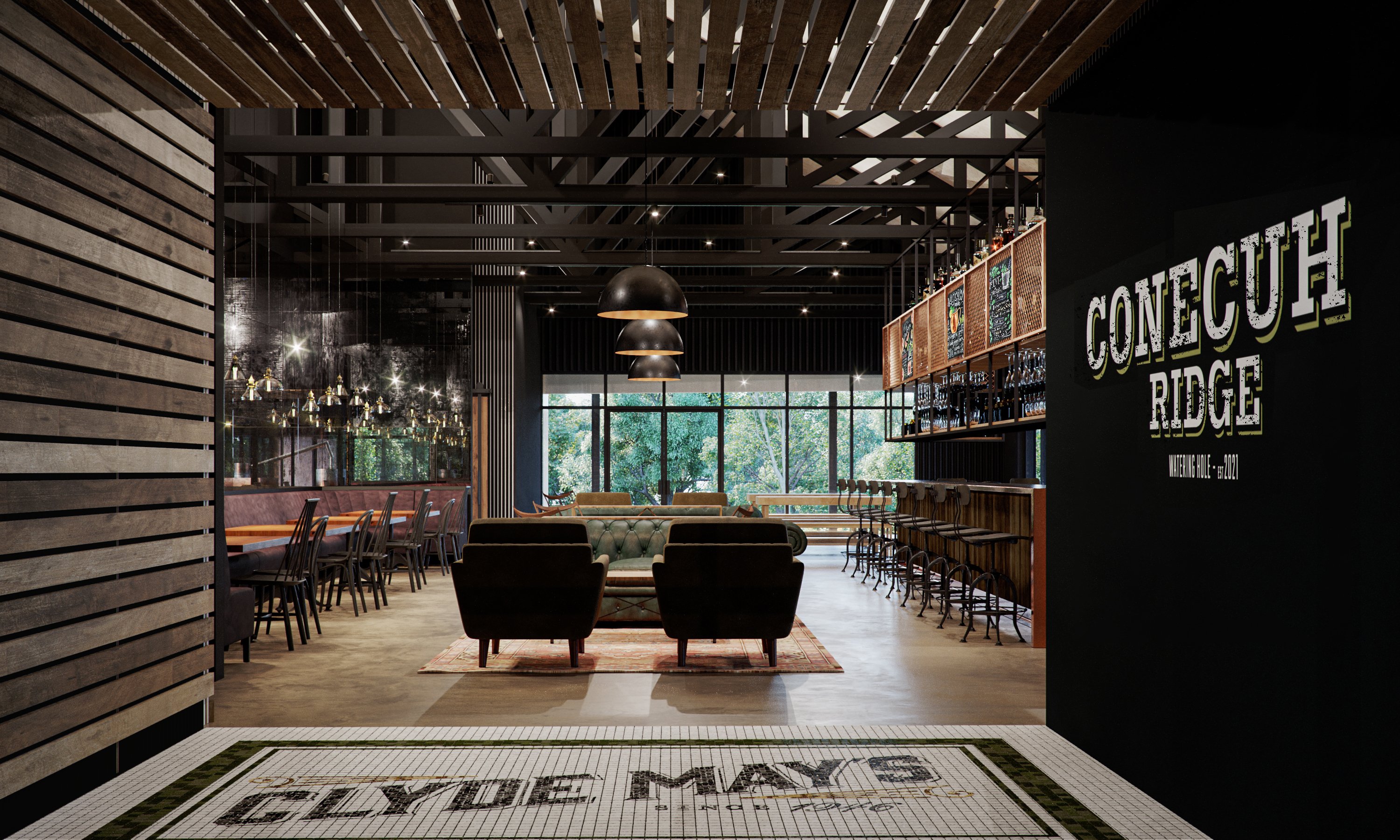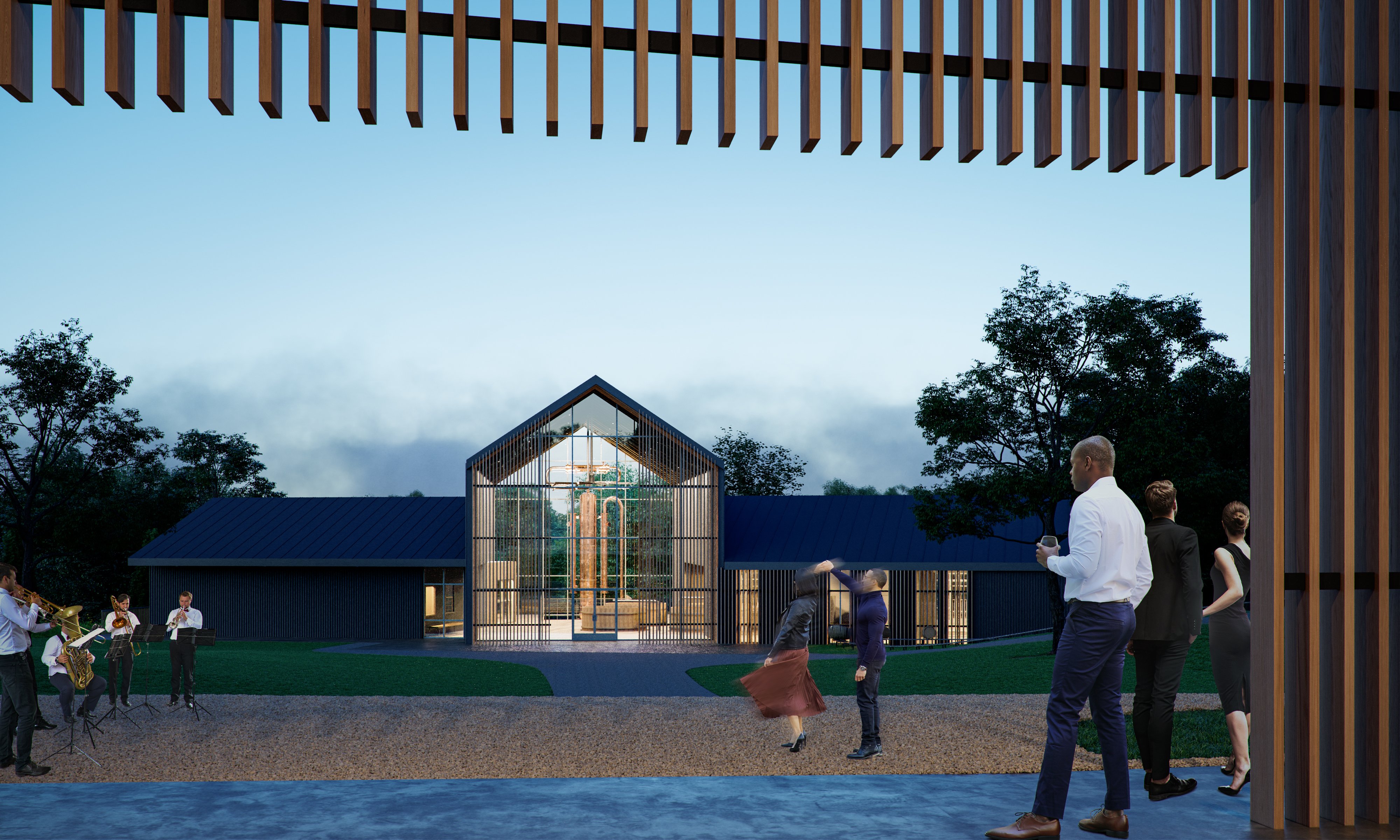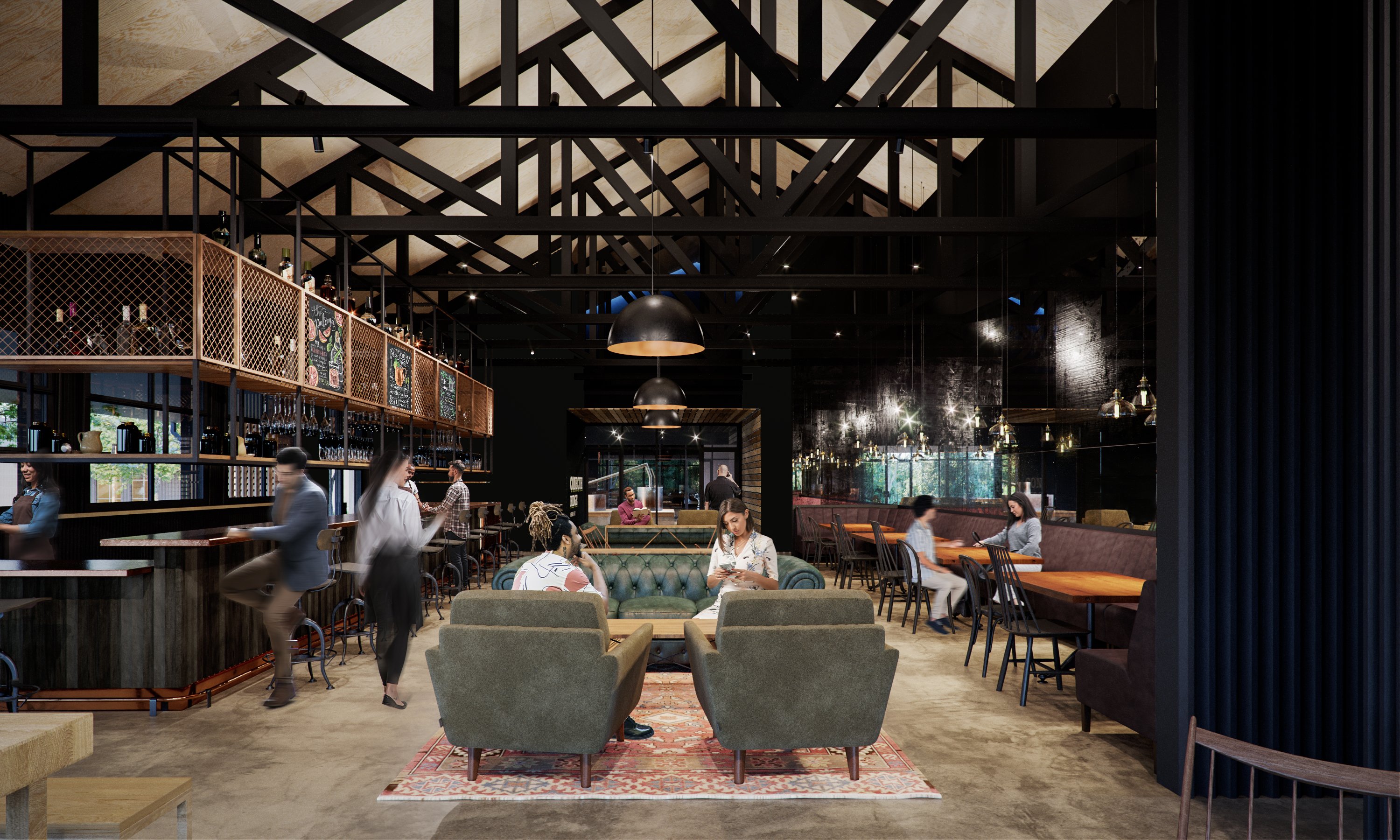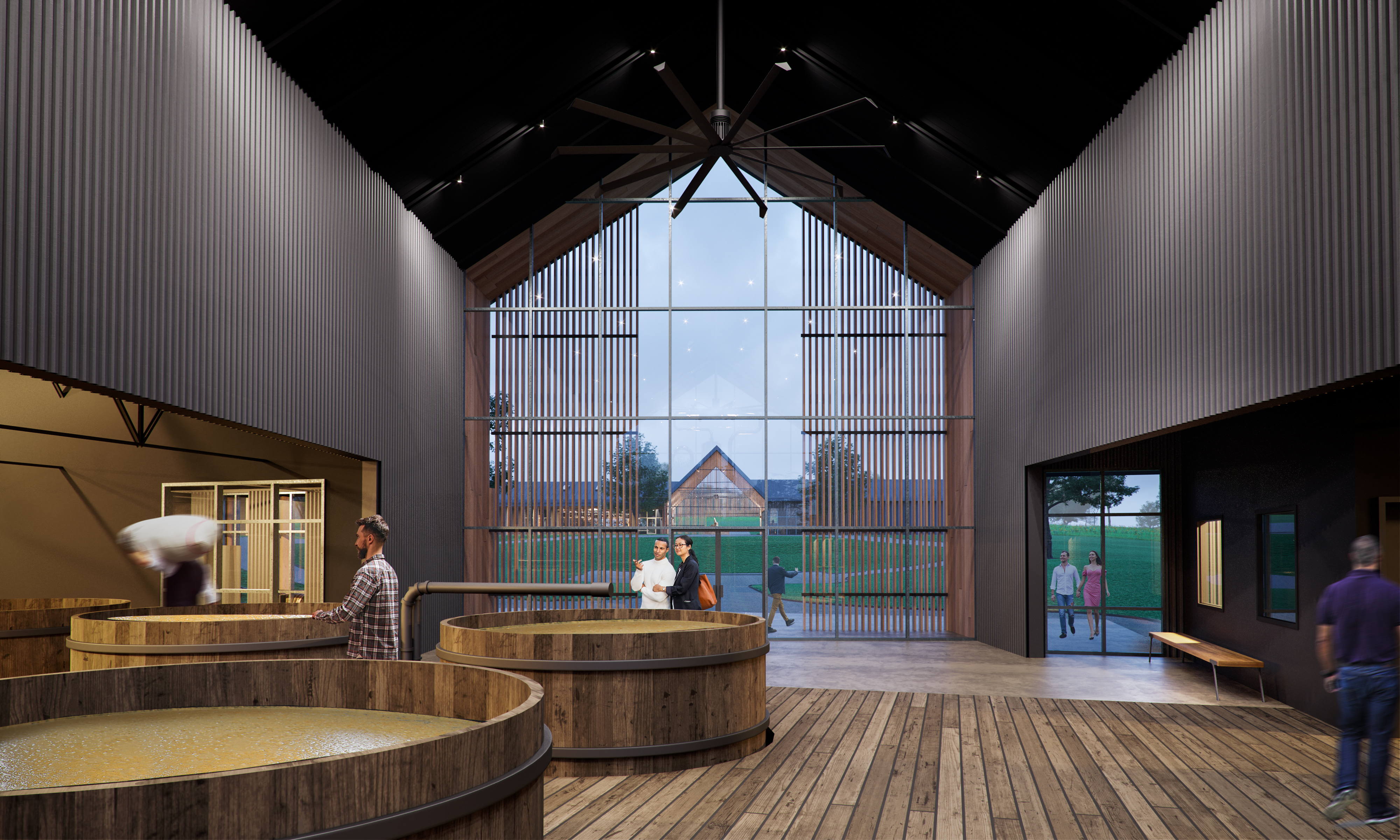ABOUT THIS PROJECT
Inspired by the life and legend of Clyde May—Alabama’s original outlaw distiller turned namesake of the official state spirit—Luckett & Farley was entrusted to design a destination that honors his rebellious ingenuity while positioning the brand for long-term growth. Drawing on deep expertise in the distilled spirits sector and a legacy of designing iconic visitor experiences, our team provided comprehensive design services from master planning through construction administration, helping bring to life Alabama’s first and only legal distillery.
The greenfield campus in Troy was envisioned not as a singular structure but as a series ofinterconnected experiences, nestled into the site’s rolling hills and mature woodlands. Thedesign mirrors Clyde May’s dual nature—part moonshiner, part entrepreneur—by marryingagrarian vernacular architecture with elevated experiential design. A gravel drive windsthrough forested terrain, gradually revealing a collection of thoughtfully placed structures: astill house with a 40-foot copper column still, a rickhouse, bottling facility, mill, and The BigHouse, which includes a tasting room, retail space, and restaurant with open-air porches.
With the goal of making Clyde May’s a catalyst for agritourism in Alabama, every element ofthe campus was conceived to balance visitor immersion with operational transparency.Public and production functions were clearly delineated yet visually connected to reveal thecraft. Pathways lead guests through apple orchards, an amphitheater, and even to a replicaof Clyde’s hidden still in the woods, offering storytelling at every turn.
Sustainability was an essential layer of the design. The project leverages site topography forgravity-fed process lines, reducing energy consumption, while the buildings use breezeways,porches, and operable doors for natural ventilation. Water conservation is achieved throughlow-flow fixtures and a passive stormwater strategy that uses existing lakes for on-sitemanagement. Native meadow grasses and preserved forest reduce ecological disturbanceand maintenance needs, reinforcing a landscape-first design ethos.
Ultimately, this immersive campus doesn’t just produce whiskey—it preserves heritage, sparks tourism, and sets a benchmark for future spirits destinations in the Southeast. Luckett & Farley’s integrated architecture, engineering, and interiors approach brought Clyde May’s legacy into sharp focus—translating authenticity, place, and vision into a one-of-a-kind experience.

